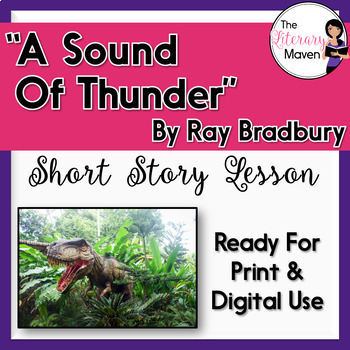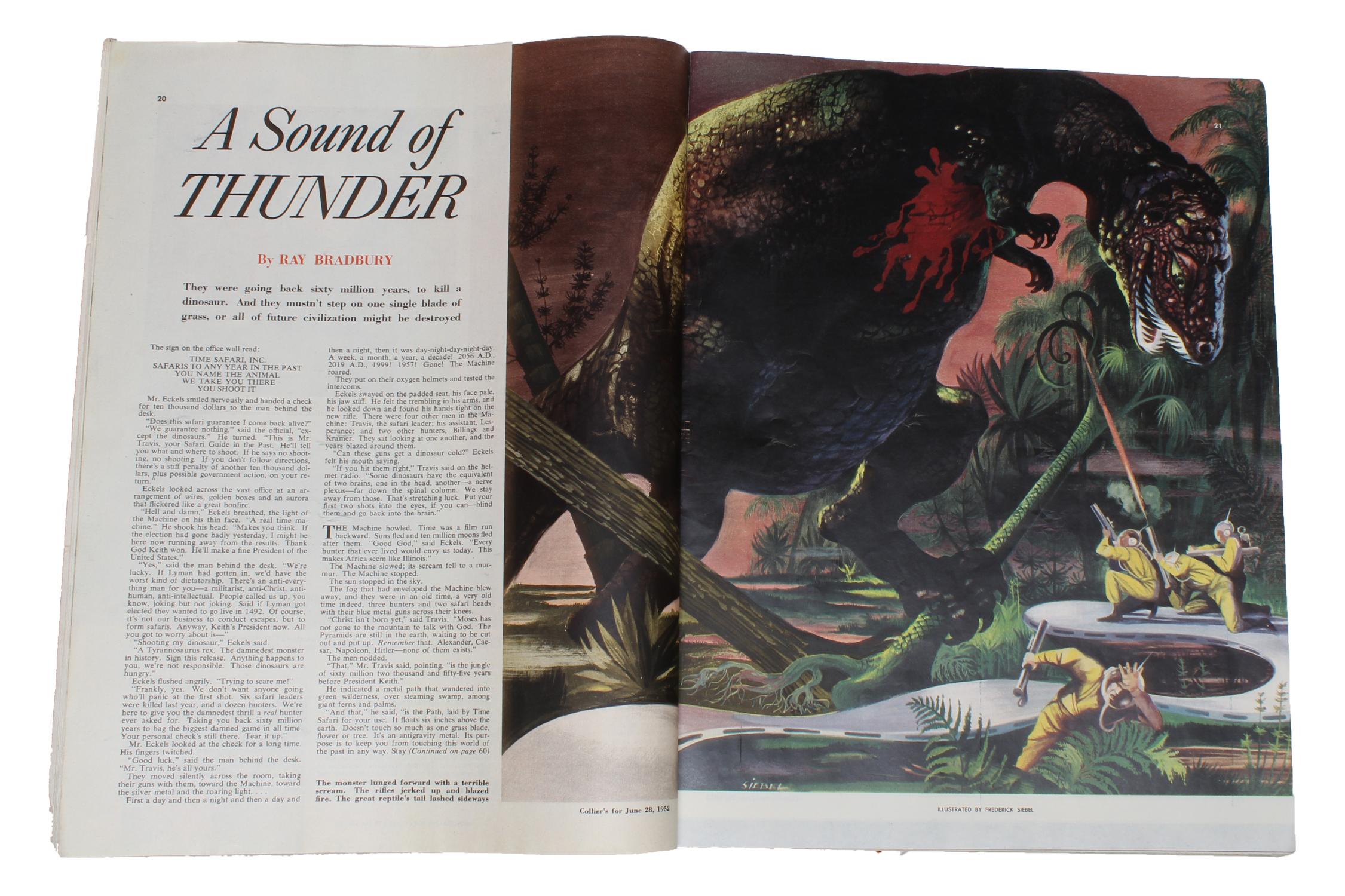



This is a big story, with big ideas, big, sweeping descriptions, and a big heart. The rhetorical grandiosity comes at a cost – the dialog is neither natural nor realistic, and the overall plot demands an enormous suspension of disbelief – but it doesn’t matter. Queen Elizabeth might never be born, Washington might not cross the Delaware, there might never be a United States at all. Step on a mouse and you leave your prints, like a Grand Canyon, across Eternity. Step on a mouse and you crush the Pyramids. Perhaps Europe is forever a dark forest, and only Asia waxes healthy and teeming. Perhaps Rome never rises on its seven hills. Like Cormac McCarthy, Bradbury uses rhetorical devices such as poetic anaphora to achieve a soaring world-historical diction, one that couldn’t be further removed from the understated, small-bore voice we’ve come to associate with so much of contemporary short fiction. Revisiting it recently, I was awestruck by Bradbury’s thunderous prophetic voice. The story deals not only with the scientific paradox of time travel – a topical concern in the post-Einstein world – but also with questions of fate, evolution, and the origins of evil.


 0 kommentar(er)
0 kommentar(er)
